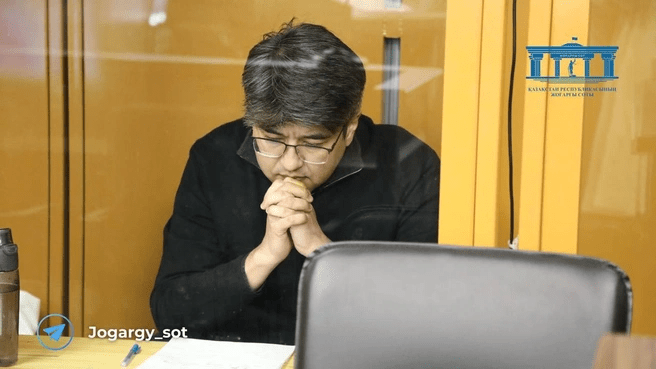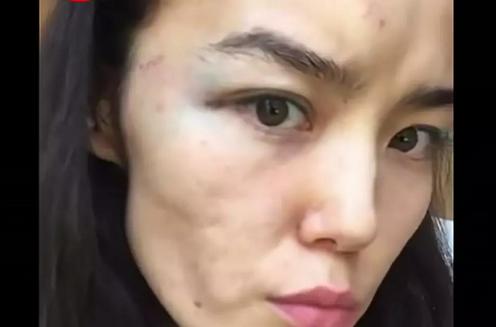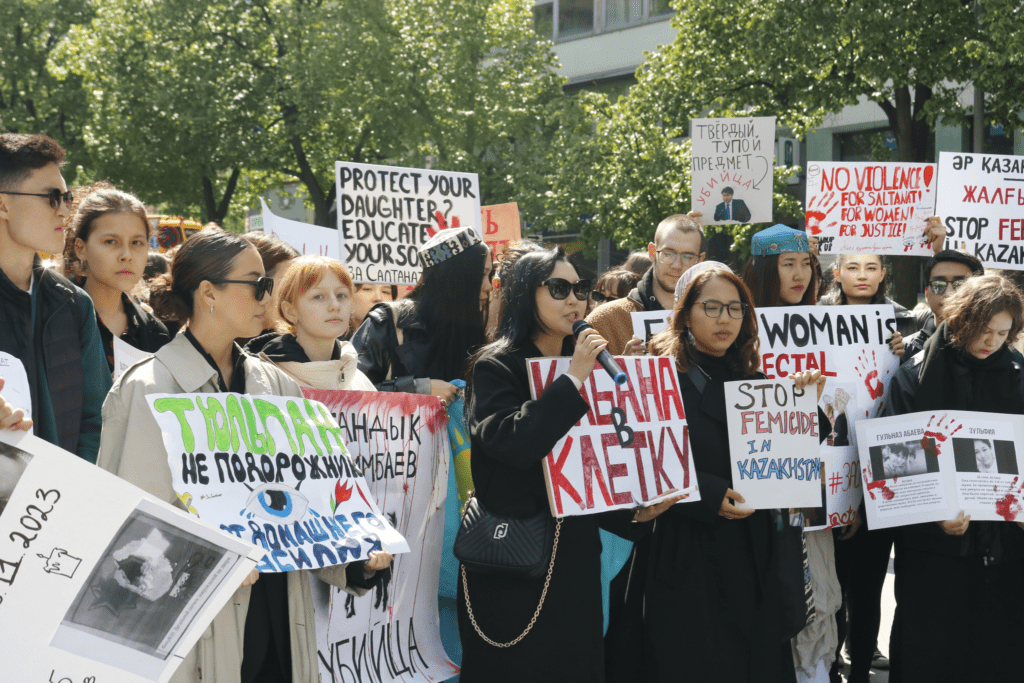Kuandyk Bishimbayev Sentenced to 24 Years for the Murder of Saltanat Nukenova
Kuandyk Bishimbayev, a former Minister of National Economy of Kazakhstan under then-President Nursultan Nazarbayev, was sentenced on Monday to 24 years in prison in the specialized inter-district investigative court of Astana for torturing and murdering his common-law wife, Saltanat Nukenova, at the Gastrocenter Restaurant on November 9, 2023. The verdict and sentence in an Astana courtroom followed a live-streamed trial that galvanized discussion about domestic violence in Kazakhstan and tested the ability of the criminal justice system to hold the powerful and influential to account. Rallies in support of Nukenova spread outside of Kazakhstan, and were staged in Czechia, Georgia, Italy, Spain, and numerous other countries. [caption id="attachment_17886" align="alignnone" width="2048"] A rally in Prague in support of Saltanat Nukenova. Image Source: Asel Kamiyeva [/caption] Judge Aizhan Kulbaeva read out the ruling after a jury trial as Bishimbayev stood in the glass-paneled dock, his head bowed at one point. He had acknowledged beating Nukenova and said his actions, which were captured on CCTV video, led to her death. But he claimed he did not intend to kill her. "Bishimbayev Kuandyk Alikhanovich has been found guilty of committing criminal offenses under p. 1. 2 part 2 of article 110 ("Torture") and point 5 part 2 of article 99 ("Murder"). 2 part 2 of article 99 ("Murder") of the Criminal Code," stated the judge. He was sentenced to 7 years on the first count, and 20 years on the second, which after a partial addition of terms amounted to 24 years in prison. [caption id="attachment_17896" align="alignnone" width="1200"] Image from the Astana court session[/caption] In addition, the director of Gastrocenter, Bakhytzhan Baizhanov was found guilty of harboring a particularly serious crime in advance and sentenced to four years in prison in a medium security penal institution, with time already served being taken into account. During the trial, as public outrage over Nukenova’s killing simmered in Kazakhstan, President Kassym-Jomart Tokayev signed a new law in April in line with OECD standards which tightens the penalties for domestic violence and provides more help for survivors. The legislation became widely-dubbed, "Saltanat's Law." The response to Saltanat Nukenova's harrowing attack signals a positive trend for women’s rights in the region. The case quickly advanced to a jury trial, given full transparency via a live broadcast, with a female prosecutor at the helm — a clear stance on gender violence in Kazakhstan. Human Rights Watch commended the law as a step forward, but say it should have designated domestic violence as “stand-alone offense,” which would allow other types of violence within the family, such as psychological or sexual, to be thoroughly investigated and prosecuted. The UNDP, meanwhile, commended “legislative initiatives protecting women’s [and] children’s rights,” calling them a “crucial step towards equality, justice [and] safety for all citizens” that “lay a foundation for a stable, prosperous society.” This is not be the first time that Bishimbayev has been sentenced. In 2018 he received a ten-year sentence for accepting bribes, but after less than a year later he was pardoned...






